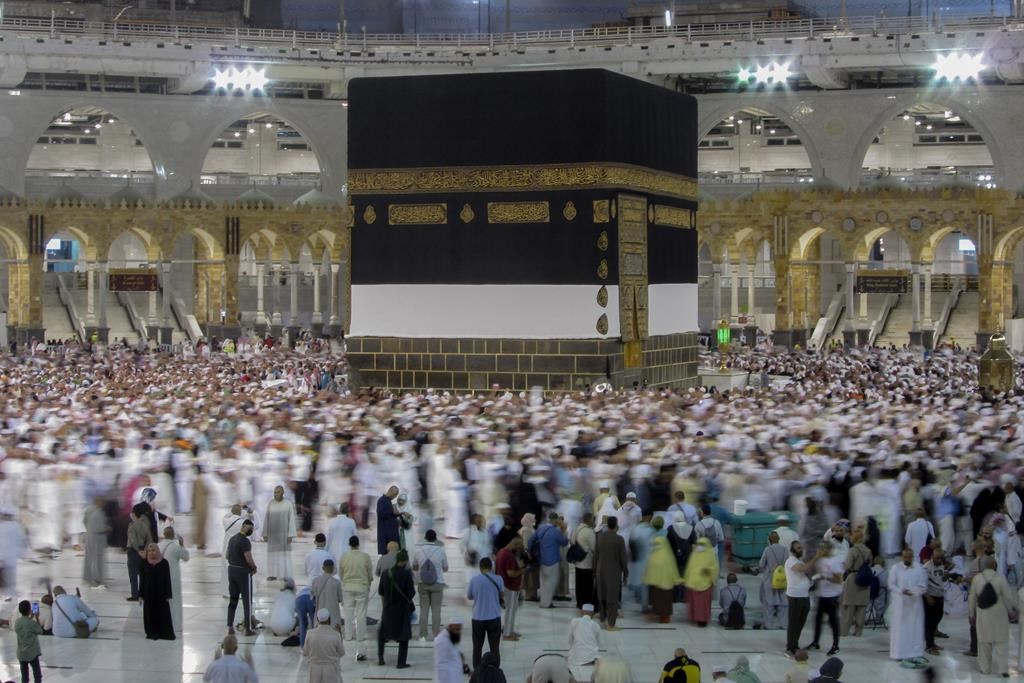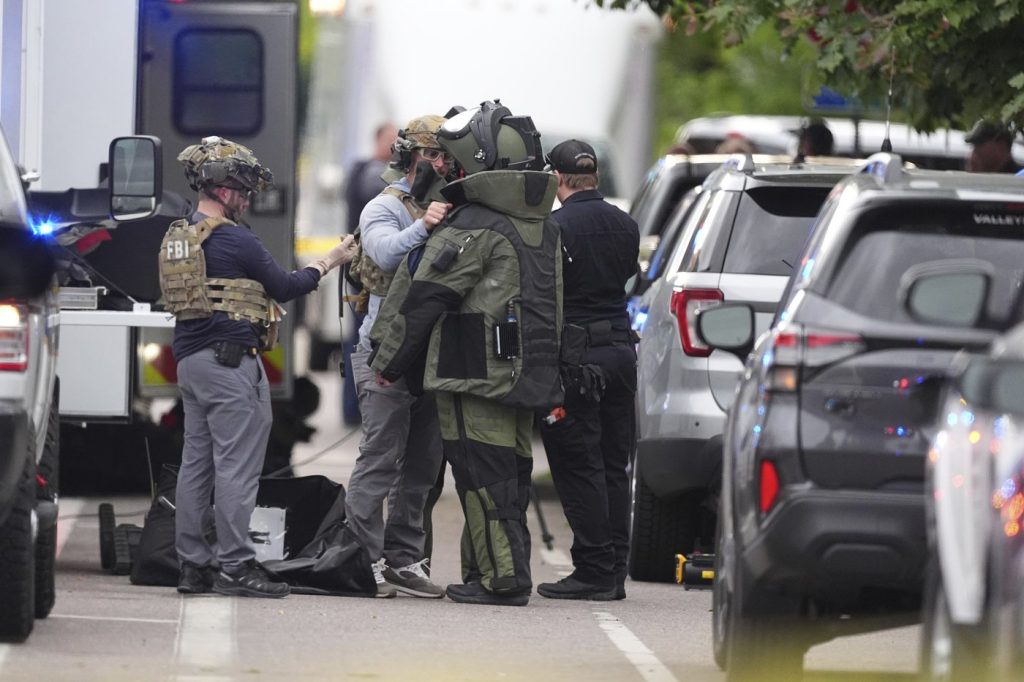MECCA, Saudi Arabia (AP) — The Saudi Arabian authorities have taken strict measures to prevent unauthorized participants from joining the annual Hajj pilgrimage, stopping more than 269,000 individuals without permits from entering Mecca. This crackdown stems from concerns about overcrowding during the pilgrimage, which the government attributes in part to a significant number of illegal entries.
The government officials have expressed that unauthorized pilgrims pose a risk not just to themselves, but to overall safety, especially following last year’s tragic incidents where a considerable number of pilgrims died due to extreme summer heat. As of now, there are approximately 1.4 million Muslims in Mecca legally, with more expected to arrive as the pilgrimage progresses.
To reinforce adherence to Hajj regulations, the Saudi authorities impose hefty penalties, including fines that can reach as high as $5,000, along with other punitive actions such as deportation for any individual caught performing the Hajj without an official permit. This policy applies not only to foreign pilgrims but also to Saudi citizens and residents who might attempt the pilgrimage without the necessary authorization.
In a recent press conference held in Mecca, officials reported that they had successfully intercepted 269,678 unauthorized individuals attempting to enter the city during this year’s pilgrimage season. According to regulations, only those who have secured permits are allowed to undertake the pilgrimage, even if they are residents of Mecca year-round.
Additionally, over 23,000 residents have faced penalties for breaching Hajj regulations, and the licenses of about 400 Hajj-related companies have been revoked as part of the enforcement measures. Lt. Gen. Mohammed Al-Omari emphasized the vigilance of the authorities, stating, “The pilgrim is in our sight, and anyone who disobeys is in our hands.”
The Hajj is one of the five pillars of Islam, representing an obligatory pilgrimage that every Muslim must undertake at least once in their lifetime, provided they have the means and physical capability to do so. Despite its spiritual significance, the Hajj has been impacted by challenges such as extreme temperatures, particularly as many rituals are conducted outdoors during peak sunlight hours.
Historically, the pilgrimage, which at times attracts over 2 million participants over its five-day duration, has experienced tragic incidents, including stampedes and other accidents resulting in fatalities. These risks underscore the need for stringent safety protocols, particularly in recent years marked by increasing numbers of participants and heightened temperatures.
In a bid to enhance safety and regulation enforcement during the Hajj, Saudi Arabia’s Civil Defense has introduced the use of drones for the first time. These drones are designed to assist in surveillance and monitoring of the pilgrimage, as well as playing a role in extinguishing fires that may arise during the various rituals and gatherings.
As the Hajj unfolds, the Saudi authorities remain focused on ensuring that only authorized pilgrims participate, prioritizing the safety and welfare of everyone involved in this monumental religious event.












